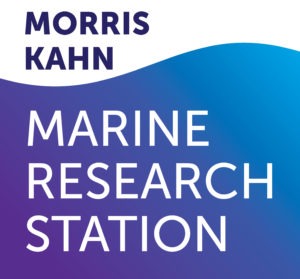MKMRS
Morris Kahn Marine Research Station
Established: 2015
| Organisation type: | Research infrastructure |
| Geographical scope: | National |
| Member countries: | Israel |
| Participating countries: | Dominica, United States |
| Funding source | Percentage |
|---|---|
|
%
|
|
|
%
|
|
|
%
|
|
|
%
|
|
|
%
|
|
|
%
|
|
|
%
|
|
|
%
|
|
|
%
|
Organisation’s vision:
In Israel, the Mediterranean Sea plays a crucial role in our society, culture, history, and economy. The Levantine Basin is particularly burdened as a result of anthropogenic influences such as accelerated climate change, fishing pressures, and various forms of pollution which have all had a major effect on the ecosystem. One of the major events impacting the basin took place in 1965 with the completion of the Aswan Dam. Prior to the construction, nutrients were regularly released into the basin, which supported marine plant growth and, in turn, increased productivity for the local ecosystem. This productivity had such an impact that its benefits could be felt as far north as Lebanon. However, after the Aswan Dam was completed, the nutrients once reaching the sea were blocked, drastically reducing primary productivity in the entire region. Ultimately, this has impacted the entire ecological system and its inhabitants.
The study of the water, sediment, biota, and interactions is vital to elucidating these shifts in the system. It became apparent that a strong scientific baseline within the marine space did not exist, and data that was being collected was partially accessible, fragmented, or inconsistent by various institutions. Thus, the Morris Kahn Marine Research Station was established in 2015, by Professor Dan Tchernov, and under the auspices of the Leon H. Charney School of Marine Sciences in the University of Haifa. His aim was to provide a multi-scalar, multi-parameter, open-access database for the public and academics to utilize.
Organisation’s mission:
The Morris Kahn Marine Research Station is responsible for collecting biological and ecological data for long term research that will provide insight for understanding processes and predicting the effects of climate change and development on the environment. Such data will allow for science-based decisions that will greatly influence the interactive nature of future generations with the sea and the marine environment. This issue is particularly important given the fact that a majority of the water consumed in Israel is produced through desalinization of seawater, the main energy supply is based on marine gas fields, aquaculture is gaining momentum as development allows for the cultivation of fish for human consumption in marine farms, and national projects referring to the sea as “developable land” that can be dried and made into artificial islands for various infrastructures.
Organisation’s objectives (if different from the Mission):
The station has produced, refined, and conducted a long-term monitoring programme that collects data on marine biogeochemistry, pathogens, microbiome, apex predators, and fish, algal and invertebrates biodiversity on the rocky reefs. The framework is both bottom-up through the nutrients in the food web, and top-down through the marine apex predators (sharks, tuna, marine mammals, large bony fish). This information is crucial to help us understand and predict the ongoing effects of environmental and climate change, and to enable scientifically-based management decisions to be made, which will affect our lives and the lives of future generations of Israelis that interact with our local sea. This is especially critical at a time when most of our ecosystem services and marine natural resources are threatened.
Keywords
- Marine Ecosystems
- Marine Research
- Sustainability
- marine science and technology
- open data
Activities
- Conducting research and/or observations
- Data management, interoperability, sharing, access, open data policies
- Providing scientific advice for policy makers
